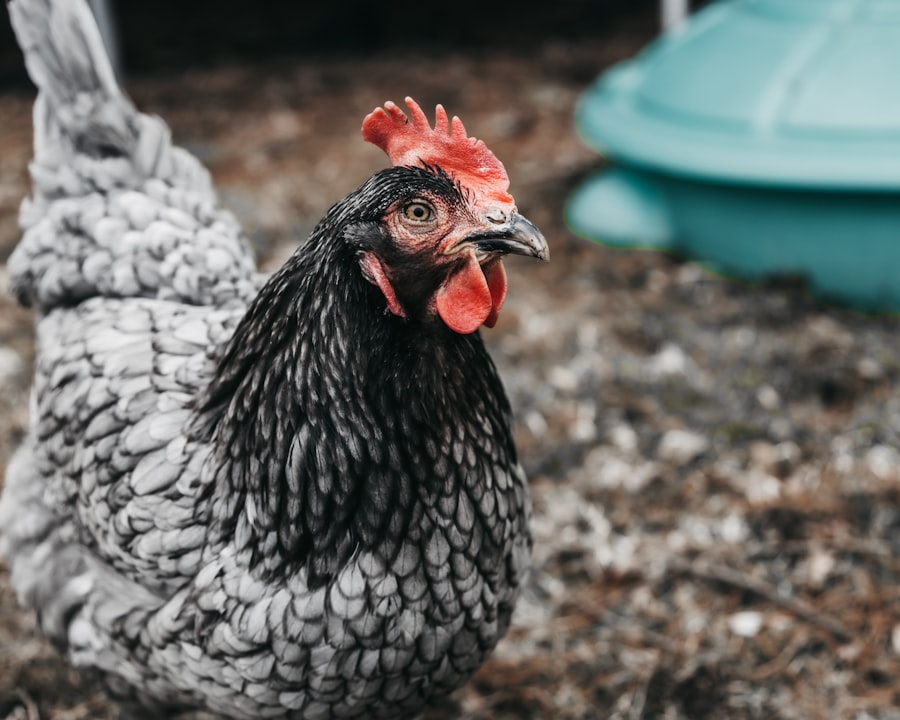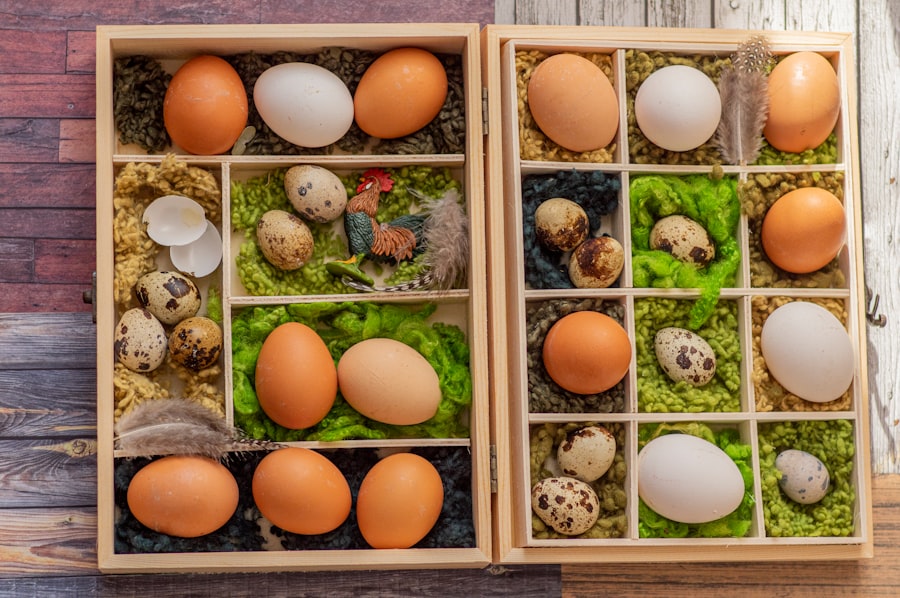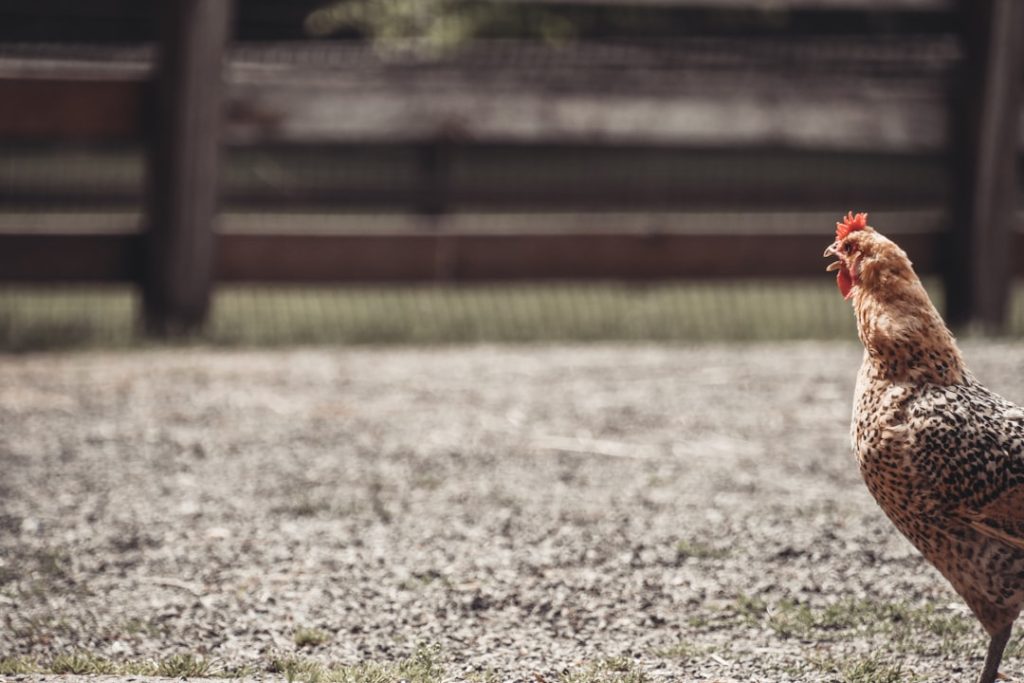Raising chickens offers numerous benefits for homeowners and small-scale farmers. The primary advantage is the production of fresh, nutritious eggs. A small flock of chickens can provide a consistent supply of high-quality eggs for household consumption.
Additionally, chickens can be raised for meat production, offering an alternative protein source. Chickens serve as natural pest control agents in gardens and yards. They actively forage for insects, grubs, and other small pests, helping to maintain a balanced ecosystem in outdoor spaces.
This behavior can reduce the need for chemical pesticides and contribute to overall garden health. Furthermore, chickens play a role in sustainable waste management. They consume kitchen scraps and other organic waste, converting it into nutrient-rich manure.
This chicken manure is an excellent fertilizer for gardens and can be composted to further enrich soil. By integrating chickens into a household’s waste management system, individuals can create a more environmentally friendly and self-sustaining cycle of resource use and recycling.
Table of Contents
Key Takeaways
- Keeping chickens provides a sustainable source of fresh eggs and natural pest control for your garden.
- Choose a chicken breed that suits your climate, space, and egg-laying needs.
- Create a cozy coop with proper ventilation, nesting boxes, and roosting bars for your chickens’ comfort.
- Feed your flock a balanced diet of commercial feed, kitchen scraps, and fresh water, and provide regular health check-ups and parasite control.
- Be prepared to handle common health issues such as mites, respiratory infections, and egg binding in your chickens.
Choosing the Right Breed for You
Purpose of Keeping Chickens
First, think about the purpose of keeping chickens. If you are primarily interested in egg production, then breeds such as the Rhode Island Red, Leghorn, or Australorp are excellent choices. These breeds are known for their high egg-laying capabilities and are relatively low maintenance.
Meat Production
If you are interested in raising chickens for meat, then breeds like the Cornish Cross or the Freedom Ranger are popular choices. These breeds grow quickly and produce a good amount of meat, making them ideal for those looking to raise chickens for consumption.
Climate and Environment
Additionally, consider the climate and environment in which you live when choosing a breed. Some breeds are better suited to cold climates, while others thrive in warmer weather. It’s important to select a breed that is well-adapted to your specific location to ensure the health and well-being of your flock.
Creating a Cozy Coop

Creating a comfortable and secure coop is essential for the health and well-being of your chickens. The coop should provide protection from predators, as well as shelter from the elements. When designing or choosing a coop, consider factors such as ventilation, insulation, and space requirements for your flock.
Ventilation is crucial to prevent the buildup of moisture and ammonia inside the coop, which can lead to respiratory issues for your chickens. Adequate ventilation can be achieved through windows, vents, or other openings that allow for air circulation without creating drafts. Insulation is important for regulating the temperature inside the coop, especially in colder climates.
Proper insulation can help keep your chickens warm during the winter months and cool during the summer months. Additionally, providing enough space for your chickens is essential for their health and happiness. Chickens need room to move around, stretch their wings, and perch comfortably.
A general rule of thumb is to provide at least 2-3 square feet of space per chicken inside the coop, and 8-10 square feet per chicken in an outdoor run.
Feeding and Caring for Your Flock
Proper nutrition is essential for the health and productivity of your flock. A balanced diet for chickens typically consists of a combination of commercial feed, kitchen scraps, and access to forage. Commercial feed should contain a mix of grains, protein, vitamins, and minerals to meet the nutritional needs of your chickens.
In addition to commercial feed, chickens can also benefit from kitchen scraps such as fruit and vegetable peels, bread, and cooked grains. However, it’s important to avoid feeding them foods that are toxic to chickens, such as avocado, chocolate, or raw beans. Access to forage is also important for chickens, as it allows them to engage in natural behaviors such as scratching and pecking.
Foraging provides mental stimulation and helps keep chickens active and healthy. Regularly cleaning the coop and providing fresh bedding is essential for maintaining a clean and healthy environment for your flock. This helps prevent the buildup of bacteria and parasites that can lead to health issues for your chickens.
Dealing with Common Chicken Health Issues
Like any other animal, chickens are susceptible to a variety of health issues that require attention and care. Common health issues in chickens include respiratory infections, parasites, and injuries. Respiratory infections can be caused by poor ventilation or exposure to drafts in the coop.
Symptoms may include coughing, sneezing, nasal discharge, and difficulty breathing. It’s important to address respiratory infections promptly by improving ventilation in the coop and providing supportive care such as warmth and proper nutrition. Parasites such as mites and lice can also affect chickens and cause discomfort and irritation.
Regularly inspecting your flock for signs of parasites and providing appropriate treatment is essential for maintaining their health. Injuries such as cuts or wounds can occur from fights between chickens or encounters with predators. It’s important to clean and treat any injuries promptly to prevent infection and promote healing.
Regular health checks and observation of your flock can help identify any potential issues early on, allowing you to take proactive measures to address them before they become more serious.
The Joys of Fresh Eggs

Fresh Eggs: A Delicious and Nutritious Treat
Fresh eggs from backyard chickens are not only delicious but also nutritious and versatile in cooking and baking. Eggs from backyard chickens are known for their vibrant yolks and rich flavor, which can elevate any dish they are used in.
Enhancing Meals and Providing Pride
Whether you enjoy them scrambled, poached, or used in baked goods, fresh eggs from your own flock can enhance the flavor and quality of your meals. In addition to their culinary benefits, collecting fresh eggs from your own chickens can be a source of pride and satisfaction. Knowing that you are providing high-quality, homegrown food for your family can be incredibly fulfilling.
Saving Money on Grocery Expenses
Furthermore, having a supply of fresh eggs on hand can also save you money on grocery expenses. By producing your own eggs, you can reduce your reliance on store-bought eggs and enjoy the cost savings that come with it.
Embracing the Homesteading Lifestyle
Keeping chickens is often a gateway to embracing the homesteading lifestyle, which emphasizes self-sufficiency, sustainability, and a connection to the land. By keeping chickens, you can take steps towards producing your own food and reducing your environmental impact. In addition to eggs and meat, chickens also provide valuable resources such as feathers for crafts or insulation, as well as manure for fertilizing gardens and crops.
These resources contribute to a more self-sufficient way of living that aligns with homesteading principles. Furthermore, keeping chickens can foster a deeper connection to nature and the rhythms of the natural world. Caring for animals and tending to their needs can provide a sense of purpose and fulfillment that comes from living in harmony with the land.
The homesteading lifestyle also encourages practices such as composting, gardening, and sustainable living, all of which can be enhanced by keeping chickens as part of a holistic approach to self-sufficiency. In conclusion, keeping chickens offers a wide range of benefits that extend beyond just providing fresh eggs. From pest control to composting, from fostering a connection to nature to embracing a self-sufficient lifestyle, keeping chickens can enrich your life in numerous ways.
By choosing the right breed, creating a cozy coop, providing proper care and nutrition, addressing health issues promptly, and enjoying the rewards of fresh eggs, you can experience the joys of keeping chickens while embracing the homesteading lifestyle.
If you’re looking for tips on how to keep your chickens happy and healthy, you might want to check out this article on chicken coop nest boxes. It offers valuable information on creating a comfortable and safe environment for your feathered friends.
FAQs
What are some benefits of keeping chickens?
Keeping chickens can provide a sustainable source of fresh eggs, natural pest control for your garden, and a source of organic fertilizer for your plants.
What do chickens need to thrive?
Chickens need a secure and spacious coop, access to fresh water, a balanced diet of feed and kitchen scraps, and regular health check-ups to thrive.
What are some common challenges of keeping chickens?
Common challenges of keeping chickens include predators, disease, and the need for regular maintenance of the coop and surrounding area.
How can I keep my chickens healthy and happy?
To keep chickens healthy and happy, provide them with a clean and safe living environment, a balanced diet, regular access to fresh air and sunlight, and opportunities for exercise and social interaction with other chickens.
What are some important considerations before getting chickens?
Before getting chickens, it’s important to check local regulations and zoning laws, consider the time and resources needed for their care, and ensure that you have a suitable living space for them.
Meet Walter, the feathered-friend fanatic of Florida! Nestled in the sunshine state, Walter struts through life with his feathered companions, clucking his way to happiness. With a coop that’s fancier than a five-star hotel, he’s the Don Juan of the chicken world. When he’s not teaching his hens to do the cha-cha, you’ll find him in a heated debate with his prized rooster, Sir Clucks-a-Lot. Walter’s poultry passion is no yolk; he’s the sunny-side-up guy you never knew you needed in your flock of friends!







